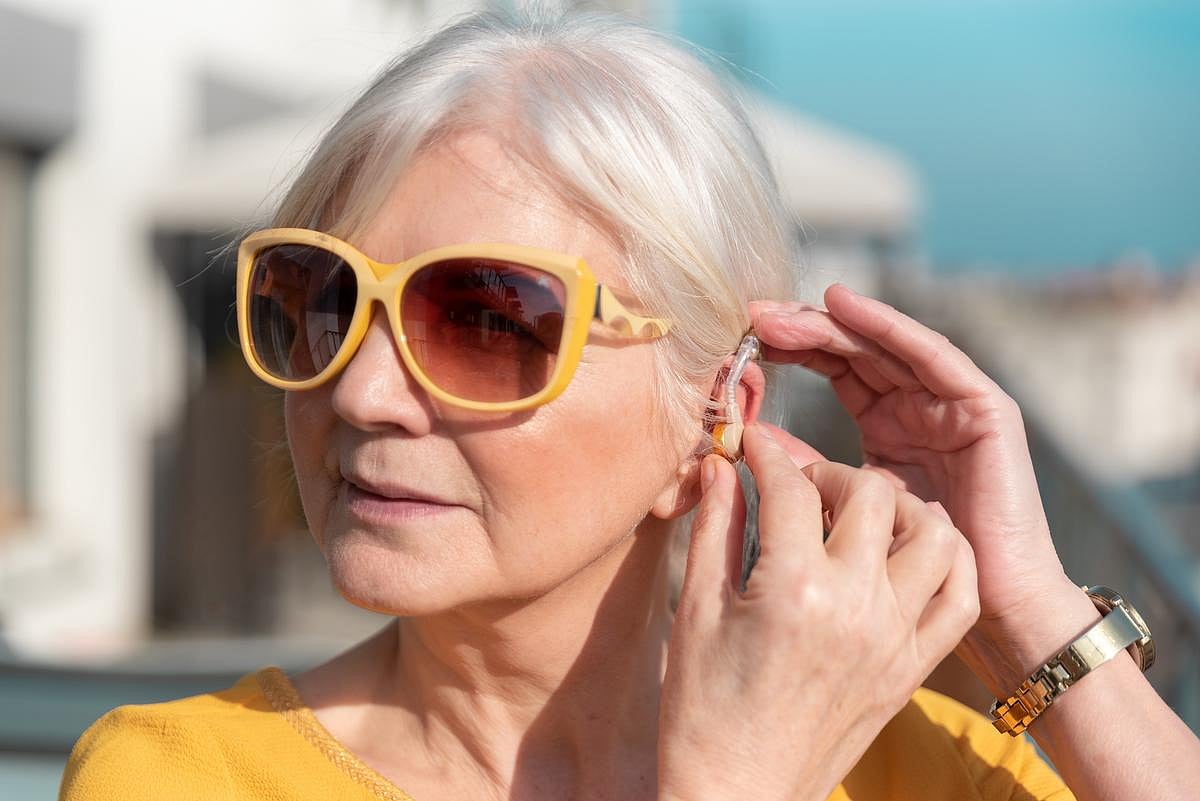
- Dennis Thompson
- Posted July 3, 2025
Hearing Aids Are a Boon To Social Life, Study Finds
Some folks won’t use hearing aids because they’re worried the devices will make them look old or get in the way of their social life.
Nothing could be farther from the truth, a new evidence review says.
Hearing aids dramatically improve a person’s social engagement and reduce feelings of isolation or loneliness, based on evidence from 65 prior studies involving nearly 6,000 people.
"We found that adults with hearing loss who used hearing aids or cochlear implants were more socially engaged and felt less isolated compared to those who didn’t use them,” senior researcher Dr. Janet Choi, an otolaryngologist with the University of Southern California’s Keck School of Medicine, said in a news release.
“This suggests that hearing devices may help prevent the social disconnection and broader health consequences that can follow untreated hearing loss,” Choi added.
Nearly 30 million U.S. adults could benefit from hearing aids, only 16% of people who need them actually use them, according to the National Council on Aging (NCOA).
The stigma surrounding hearing loss is one common reason why people eschew hearing aids, the NCOA says, along with the cost and hassle of the devices.
To see whether these fears are well-founded, researchers conducted a review of previous studies that investigated how hearing aids affect users’ quality of life.
The review focused specifically on three key measures: Quality of social life, perceived social handicaps caused by hearing loss and loneliness.
Results showed that people using hearing devices felt more socially connected and less limited in social situations.
They were better able to engage in group conversations and felt more at ease in noisy environments, researchers said.
Hearing aid users also felt less socially handicapped by their hearing loss, with fewer frustrations caused by trouble keeping up with conversations, researchers said.
The increased confidence provided by all these benefits helped people connect more easily with others, leading to stronger feelings of belonging and reduced social anxiety, researchers noted.
All of this could mean that hearing aids help lower the risk of dementia and brain aging, given that isolation has been linked to cognitive decline, researchers said.
“While our study didn’t directly measure cognitive outcomes, the improvements we saw in communication and social engagement suggest that by restoring clearer communication, hearing devices may help preserve cognitive health by keeping the brain more actively involved and people more connected,” Choi said.
These results track with those from a January 2024 study by Choi in The Lancet Healthy Longevity, which found that people who use hearing aids have a nearly 25% lower risk of premature death.
“These new findings add to a growing body of research showing that hearing health is deeply connected to overall well-being,” Choi said. “We hope this encourages more people to seek treatment and helps clinicians start conversations with patients about how hearing devices can improve their quality of life.”
The evidence review was published today in JAMA Otolaryngology-Head and Neck Surgery.
More information
The National Council on Aging has more about the reasons so few use hearing aids.
SOURCE: University of Southern California, news release, July 3, 2025
